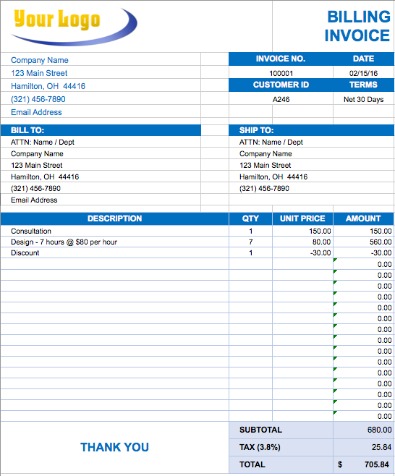Content
- What Are the Biggest Drawbacks of Itemizing?
- Tax credits vs. tax deductions: What’s the difference?
- Increasing Individual Income Tax Rates Would Impact a Majority of U.S. Businesses
- When to itemize vs. take the standard deduction?
- What it means to have itemized deductions on your tax return
- Other Tips to Get You Through Tax Season

Essentially, if you spent a significant amount on medical treatment, mortgage interest, business expenses, or charitable gifts, you should examine the financial discrepancy between standard and itemized deductions in your case. Individuals should understand they have a choice of either taking a standard deduction or itemizing their deductions. Taxpayers can use the method that gives them the lower tax. Due to tax law changes in the last couple of years, people who itemized in the past might not want to continue to do so, so it’s important for all taxpayers to look into which deduction to take.
Is it better to itemize or take the standard deduction?
You should itemize deductions if your allowable itemized deductions are greater than your standard deduction or if you must itemize deductions because you can't use the standard deduction. You may be able to reduce your tax by itemizing deductions on Schedule A (Form 1040), Itemized Deductions.
The standard deduction is the better deal for most taxpayers and will result in a lower tax bill. However, if you had a certain life event or unexpected expense occur in 2022, such as a large medical bill or purchasing a home, itemizing your deductions instead could save you more money. A tax shield is a reduction in taxable income by claiming allowable deductions such as mortgage interest and medical expenses. For every taxpayer, the answer may be different, as extenuating circumstances may result in a higher itemized deduction for some but a higher standard deduction for others. The only way to determine this for yourself is to compare your potential itemized deductions by the current standard deduction.
What Are the Biggest Drawbacks of Itemizing?
There are seven federal individual income tax brackets; the federal corporate income tax system is flat. For federal purposes, you can no longer claim an itemized deduction for a casualty or theft loss unless it is the result of a federally declared disaster. For New York purposes (Form IT-196, line 20), you can claim casualty and theft losses. However, for a casualty loss that is https://quick-bookkeeping.net/ the result of certain federally declared disasters (Form IT-196, line 37), see Other miscellaneous deductions, below. For federal purposes, the itemized deduction rules for home mortgage and home equity interest you paid in 2022 have changed from what was allowed as a deduction for tax year 2017. For New York purposes (Form IT-196, lines 10 and 11), these changes do not apply.
- Currently, taxpayers cannot deduct more than $10,000 in state and local taxes, nor can they deduct home mortgage interest on loan amounts over $750,000.
- However, if taxpayers directly benefited from the goods and services funded by state and local taxes, concerns about the ability to pay those taxes would be lessened.
- Standard deduction is a specific dollar amount that you can deduct from your income to reduce your taxable income.
- Here are a few questions to help you decide whether itemizing deductions might be beneficial for you.
- Married but filing separately and your spouse chooses to itemize.
It does not provide for reimbursement of any taxes, penalties, or interest imposed by taxing authorities and does not include legal representation. Additional terms and restrictions apply; See Guarantees for complete details. An additional source of uncertainty is how state and local governments would react to the various alternatives.
Tax credits vs. tax deductions: What’s the difference?
By authorizing H&R Block to e-file your tax return, or by taking the completed return to file, you are accepting the return and are obligated to pay all fees when due. Federal Difference Between Standard Deduction And Itemized Deduction pricing will vary based upon individual taxpayer circumstances and is finalized at the time of filing. File your taxes and get every credit and deduction you deserve.
When you take the standard deduction, you basically opt to take a flat-dollar deduction instead of picking and choosing from the multitudes of individual tax deductions out there. The standard deduction amount increases slightly every year. The standard deduction amount depends on the taxpayer's filing status, whether they are 65 or older or blind, and whether another taxpayer can claim them as a dependent. Taxpayers who are age 65 or older on the last day of the year and don't itemize deductions are entitled to a higher standard deduction.
Increasing Individual Income Tax Rates Would Impact a Majority of U.S. Businesses
Please see our Privacy Policy for more information and details on how to opt out. Charitable contributions can only be deducted if they're itemized. If you made many donations throughout the year, they could add up to thousands of dollars, making itemizing more beneficial. Hints as to whether you may benefit from itemizing, without doing detailed calculations, could lie in whether youowned a home, had significant medical expenses, or made sizable donations.

Depending on your financial situation, itemizing may allow you to shield more income from taxes and lower your overall tax bill. There also are restrictions on how much you can deduct for casualty losses suffered in a federally declared disaster, as well as limits on the deductibility of very large charitable contribution amounts. Bankrate’s editorial team writes on behalf of YOU – the reader. Our goal is to give you the best advice to help you make smart personal finance decisions. We follow strict guidelines to ensure that our editorial content is not influenced by advertisers. Our editorial team receives no direct compensation from advertisers, and our content is thoroughly fact-checked to ensure accuracy.
By comparison, if the taxpayers who filed those returns had claimed the standard deduction instead, their deductions would have totaled $475 billion, and aggregate taxable income would have been about $925 billion higher. Put another way, those taxpayers collectively received $925 billion more in deductions than they would have received if they had been required to claim the standard deduction. North Carolina itemized deductions are not identical to federal itemized deductions and are subject to certain limitations.
